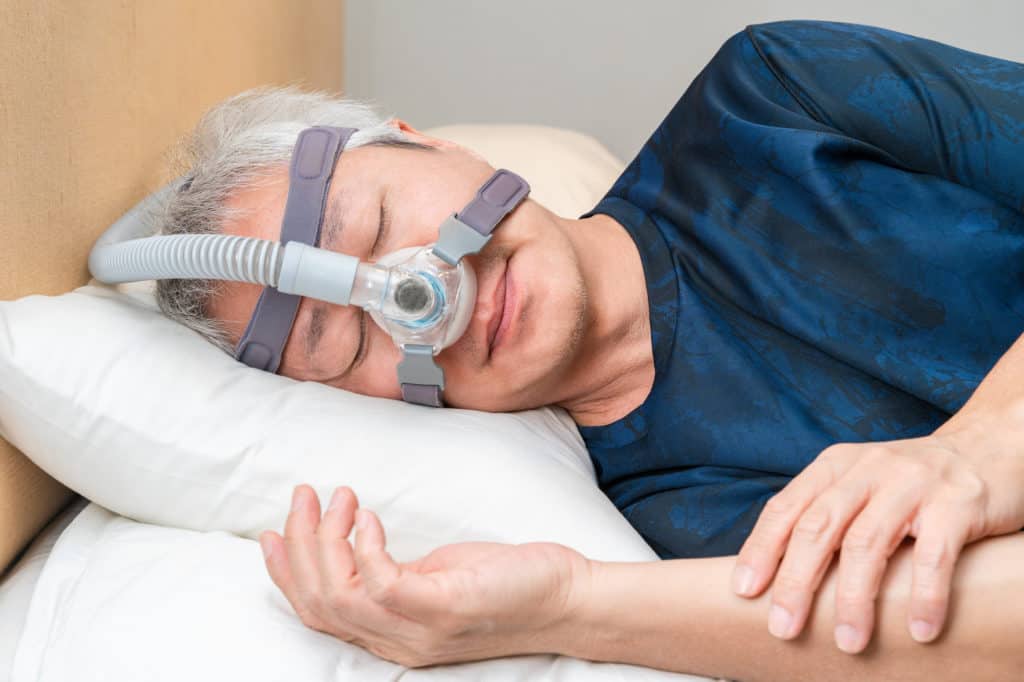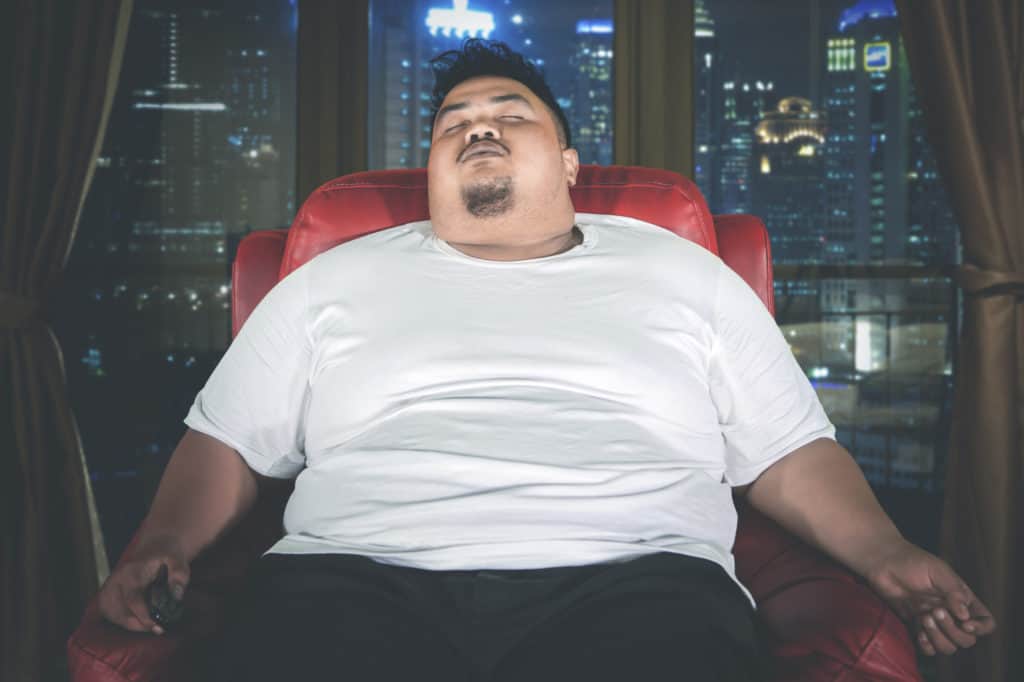Does A CPAP Help You Lose Weight?
For some patients who are overweight and require the use of a CPAP machine to help manage their medical issues, it could be a way to lose weight. There have long been rumors swirling around whether or not a CPAP machine can help you lose a few pounds, and several different entities decided to test it by running in-depth studies. We’ll outline a few of these studies below and give you our answer at the end.
Understanding Sleep Apnea
Sleep apnea is a common medical condition in people who are significantly overweight or obese. If you have it, you temporarily stop breathing because your throat muscles relax too far and cause your airway to close. This can happen up to 30 times per hour, and a CPAP machine pumps pressurized air in to keep your airway clear and open to reduce the number of times you jerk awake.

The more you wake up, the more your hormone levels can become unbalanced. There are hormones that play a key role in regulating your appetite, and getting a good night’s sleep is paramount to keeping them balanced. This is where the connection between weight loss and using a CPAP comes into play.
Study One
The Endocrine Society performed a study and presented their results in New Orleans, LA at the 2019 Annual Scientific Sessions. They found that patients who had Obstructive Sleep Apnea lost around 5.7 more pounds over the four-month study than people who didn’t use the CPAP machine.
The investigators in this study took medical records from 501 obese adults. These people were getting treatment at the University of Arkansas for Medical Sciences starting in early 2015 and going through the middle of 2017. This 16-week program had the participants restrict their diet to 800 calories a day, undergo weekly counseling, participate in exercise programs, and undergo cognitive behavioral therapy.
Three hundred participants out of the original 501 met the eligibility criteria for the study, and the researchers divided them into three groups. The patients had to have a BMI at or higher than 30 but below 50, and the patients had to between 18 and 65 years old.
Once the patients made it through the 16-week program, the researchers found that patients who received the CPAP treatment lost 5.7 pounds more than the patients who participated and didn’t use a CPAP. On average, the patients in the group that used the CPAP lost 26.7 pounds compared to the other group’s 21-pound weight loss.
The third group in the test that didn’t have any Obstructive Sleep Apnea symptoms lost around 19 pounds over the course of the study. After the researchers took the patient’s beginning weight, sex, and age into consideration, they found that there were strong links between using a CPAP and losing weight.
The researchers widely believed that the person’s sleep quality could impact whether or not they lost weight. The patients who used the CPAP had improved sleep quality, and this led to more weight loss.

Study Two
A second study showed that patients who have Obstructive Sleep Apnea tend to have a below-normal level of the hormone leptin. This hormone is the one responsible for affecting your appetite. It tells you when you’re full, and you don’t need to eat more. They also had higher levels of ghrelin, and this is the hormone that signals that you’re hungry.
People who used a CPAP machine had more balanced levels of these hormones. In turn, this helped them regulate their appetite and the number of calories they took in because they slept better than the group that didn’t use a CPAP. They lost more weight throughout the study’s duration.
Study Three
A third study showed that using a CPAP machine could boost your energy levels because you get a deeper rest each night. In one of the first studies looking at fatigue levels and CPAP use, researchers put the participants through a randomized controlled trial.
They split the participants into two groups, and they used two scores to detail whether or not a CPAP could boost energy levels. The trial lasted three weeks, and one group used a CPAP while others didn’t. At the end of the trial, researchers found that the group that used the CPAP machines had markedly decreased fatigue levels and higher energy levels.
In turn, these results showed a positive link between weight loss and using a CPAP because the people who had more energy tended to get up and be more active than the people who were fatigued.
Study Four
One final study showed that is is possible to gain weight through using a CPAP. However, this weight gain was lean body mass, and this is a positive weight gain because you’re shedding body fat while gaining muscle to make you stronger. During the study, researchers looked at the weight gain of 78 participants who had been on long-term CPAP therapy to help handle their OSA.
They found that women had a slightly higher weight gain of 4.9 pounds over the male participants, but they did note that this weight gain was lean body mass. So, CPAP can cause weight gain, but this would be a positive one.
Does a CPAP Help You Lose Weight?
The studies show positive results for this question, and almost all of the research connects losing weight to using a CPAP. However, the research does point out that it’s the positive outcomes that can come about from using a CPAP machine like better sleep and more balanced hormones that are the root cause of the weight loss.
You could argue that it’s a direct result of using a CPAP, but a lot of it goes to diet and exercise as well. If you use all three of these things in tandem, you could see positive weight loss in body fat with weight gain in lean body mass. However, it would be a good idea to have more concrete research dedicated to this area before you make any definitive judgments.
